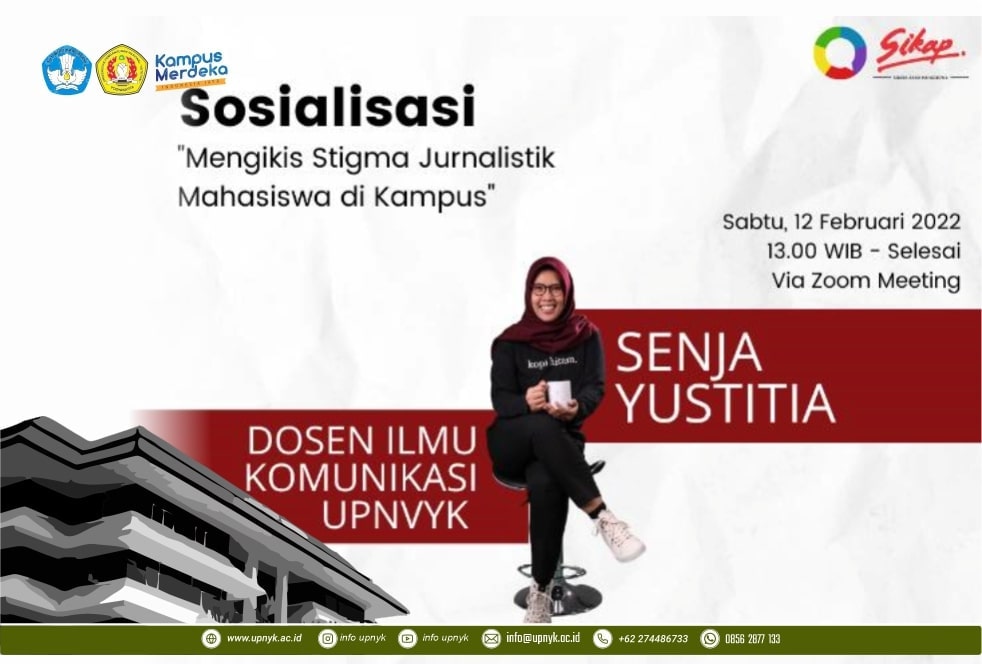Department of Communication Sciences Holds Discussion on Student Journalistic Stigma
The Student Press Agency (LPM) SIKAP of the Department of Communication Sciences at UPN "Veteran" Yogyakarta organized a socialization event titled "Eroding Student Journalistic Stigma on Campus." The event took place on Saturday (13/2/2022) via Zoom Meeting. In the socialization session, LPM SIKAP invited Senja Yustitia, M.Sc., a lecturer in Communication Sciences at UPNVYK and also the supervisor of LPM SIKAP.
This socialization event is one of the activities in the series of New Member Registration for LPM SIKAP. The event was open to the public, but membership registration was specifically for students majoring in Communication Sciences and Public Relations from the 2020-2021 cohort.
Arinda Qurnia Yulfidayanti, the Chief Editor of LPM SIKAP, conveyed in her opening remarks the reasons why the socialization event was open to the public. She explained that the goal of the event was to break down some common statements or stigmas about journalism among students.
"The existence of negative stigmas about journalism causes students to be less interested in learning journalism. For example, in the Communication Sciences Department at UPNVYK itself, only a few students choose journalism as their concentration. However, studying journalism is not only needed by students who want to become journalists," said Arinda.
In her closing remarks, Arinda hoped that the event could challenge the stigma that studying journalism is not just about writing news or becoming a journalist, but also involves critical thinking and analysis to process information into an issue. According to Arinda, these aspects can be applied in daily life.
The event then proceeded with a presentation by Senja Yustitia, M.Sc. At the beginning of her presentation, Senja, affectionately called Mbak Senja, presented research on the views of journalism students on the journalism profession. The research findings showed several positive and negative views from students.
"From this research, some students have the view that journalism is a positive profession. This positivity is related to four aspects: firstly, the journalism profession is considered special and exclusive. Secondly, it is intellectual. Thirdly, journalists have the ability to write and document events. And lastly, journalists can influence the broader audience," explained Senja.
However, Senja also presented other opinions from students regarding the negative stigma of the journalism profession. This is related to the perceived low salary of journalists, security risks, and cultural barriers from society.
Senja then further explained the benefits of the journalism profession, which lead individuals to a learning process including communication skills, logic, and critical thinking.
 English
English Indonesia
Indonesia